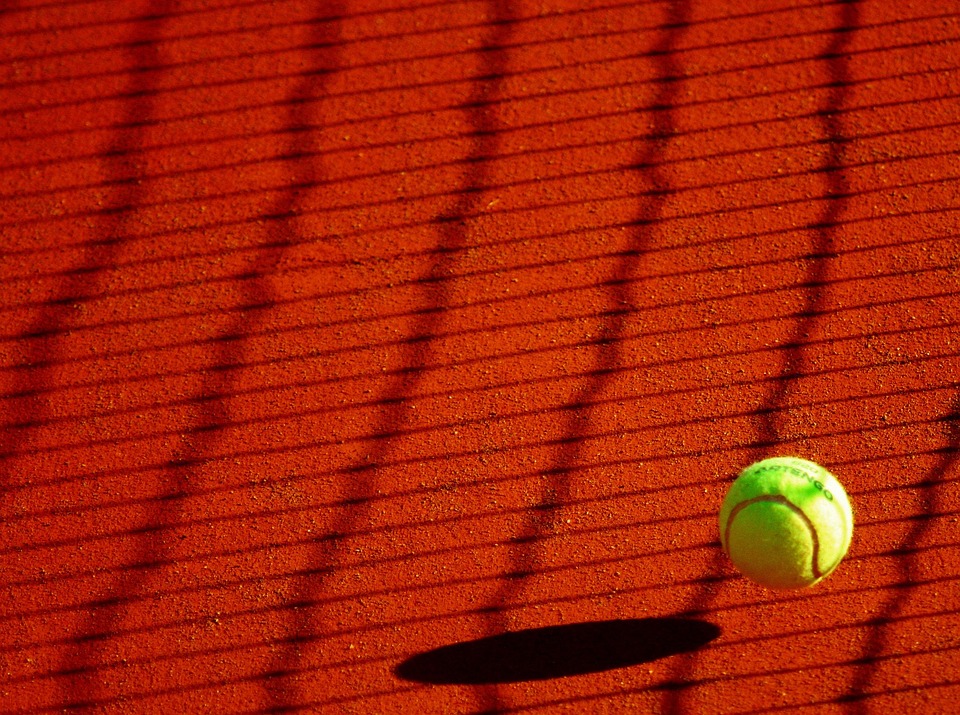From the Classroom to the Field: The Impact of Sports Psychology Education
Introduction
Sports psychology is a burgeoning field that integrally blends psychological principles with athletic performance. As athletes and coaches increasingly seek an edge over their competitors, the role of sports psychology has become paramount. This article explores the profound impact of sports psychology education, examining how theoretical knowledge translates into practical applications both on and off the field. It discusses its relevance in various sports contexts, the importance of mental skills training, and how education in this field shapes the future of athletic performance.
Understanding Sports Psychology
Definition and Scope
Sports psychology is defined as the study of how psychological factors affect performance and how participation in sports and exercise affect psychological and physical factors. It encompasses a wide range of topics, from motivation and focus to stress management and mental resilience. The scope of sports psychology education includes foundational theories and techniques that equip athletes, coaches, and sporting professionals with tools to enhance performance, improve mental health, and promote well-being in high-pressure environments.
Historical Context
The roots of sports psychology trace back to the late 19th and early 20th centuries with early pioneers like Norman Triplett, who conducted experiments on competitive cycling and found that performance improves in the presence of others. Over the decades, the discipline has evolved significantly, with key contributors developing various frameworks and techniques that athletes use today [1].
The Role of Sports Psychology Education
The Curriculum
Sports psychology education typically involves a comprehensive curriculum that covers psychology basics, specialized sports psychology practices, and applied research methods. Courses range from understanding motivation and anxiety to developing mental strategies for peak performance. Integrative courses often incorporate physical education, providing a holistic approach to athlete training [2].
Professional Development
Professional organizations, such as the Association for Applied Sports Psychology, provide guidelines for education and certification. These organizations emphasize the need for rigorous academic training paired with practical experience. Many programs require students to engage in internships, giving them exposure to real-world sports environments where they can apply their learning.
Case Studies and Practical Applications
Theoretical knowledge gained in the classroom is enriched through case studies showcasing the applications of sports psychology. For instance, when Michael Jordan, considered one of the greatest basketball players of all time, spoke about visualization and mental rehearsal, he emphasized how these techniques played a crucial role in his success. By studying his methods and similar case studies, students learn how to implement these strategies effectively [3].
Bridging Theory and Practice
Mental Skills Training
Central to sports psychology education is the concept of mental skills training (MST). MST encompasses a variety of techniques—such as goal setting, imagery, self-talk, and relaxation techniques—that athletes can utilize to enhance performance. Research indicates that athletes who engage in regular mental skills training experience improvements in focus, motivation, and overall performance [4].
Goal Setting
Goal setting is a fundamental aspect of MST. Athletes are taught to set both short-term and long-term goals, which have been shown to improve motivation and provide direction. SMART criteria (Specific, Measurable, Achievable, Relevant, Time-Bound) are often employed, helping athletes clarify their intentions and benchmarks for success [5].
Visualization
Visualization, or mental imagery, allows athletes to rehearse their performance mentally, enhancing their skills and confidence. Studies show that mental visualization can activate neuro pathways associated with physical performance, thereby reinforcing muscle memory and improving execution [6].
Stress Management
The rigorous demands of competitive sports often lead to high levels of stress and anxiety. Sports psychology education emphasizes stress management techniques, teaching athletes how to cope with pressure. Techniques such as mindfulness, deep breathing, and cognitive restructuring empower athletes to maintain composure in high-stress situations [7].
Impact on Performance
Enhanced Concentration and Focus
Research indicates that athletes equipped with sports psychology techniques demonstrate enhanced concentration and focus during competitions. This ability to concentrate directly correlates with performance, as distractions are minimized and an athlete’s full capability can be utilized [8].
Improved Resilience
Resilience is another critical component fostered through sports psychology education. Athletes learn to view setbacks as opportunities for growth rather than failures. This mindset shift contributes to increased persistence and a higher likelihood of achieving long-term success [9].
Case Examples: Real-World Applications
Real-world applications of sports psychology education can be seen in various sports. Elite gymnasts, for example, often work with sports psychologists to overcome performance anxiety, utilizing techniques like visualization before executing complex routines. Furthermore, teams in high-pressure sports, such as football and basketball, increasingly incorporate mental coaches into their training regimens, recognizing the role of mental fortitude in winning seasons [10].
Holistic Development and Lifelong Benefits
Beyond the Field
One of the most exciting prospects of sports psychology education is its applicability beyond sports. The skills and techniques acquired can be beneficial in everyday life, including career development, personal relationships, and mental wellness. Athletes learn to manage stress, communicate effectively, and develop strong interpersonal skills, making them adaptable in various life scenarios [11].
Career Opportunities
There is a growing demand for professionals skilled in sports psychology, creating diverse career opportunities in coaching, performance enhancement consulting, therapy, and research. Graduates from sports psychology programs can pursue careers in collegiate athletics, professional sports teams, and even corporate settings, where performance psychology principles are increasingly recognized as valuable [12].
Challenges and Limitations
Standardization of Education
Despite the progress made, standardization of sports psychology education remains a challenge. While some programs are accredited, discrepancies in curriculum quality and content delivery exist. This inconsistency can impact the effectiveness of sports psychologists in practical settings and highlights the need for a unified framework across programs [13].
Acceptance and Integration
Another challenge lies in the acceptance and integration of sports psychology practices within traditional sports frameworks. Some athletes and coaches remain skeptical about the relevance of mental conditioning, often prioritizing physical training over mental training. As a result, creating a culture that values mental health and psychological strategies is an ongoing battle within many sports communities [14].
Future Directions in Sports Psychology Education
Advancements in Technology
The future of sports psychology education may see greater integration of technology. The use of biofeedback, virtual reality, and mobile applications can enhance the learning experience, allowing athletes to practice mental skills in immersive environments. Such technologies can serve as tools for real-time feedback, helping athletes refine their techniques and manage performance anxiety more effectively [15].
Research and Evidence-Based Approaches
As the field expands, the emphasis on evidence-based practices will continue to grow. Research into the psychological aspects of sports performance is crucial in advancing the field and providing validated techniques for athletes and coaches. Increasing collaboration between educational institutions and professional sports organizations can enhance research efforts and lead to more effective interventions [16].
Conclusion
In summary, the impact of sports psychology education is profound, reaching far beyond the confines of academic institutions and extending into the hearts and minds of athletes and coaches alike. By providing essential skills and knowledge, sports psychology education empowers individuals to enhance their performance, cope with challenges, and embrace the mental aspects of athletic competition. As the field continues to evolve, the integration of new technologies and evidence-based practices will further enrich the training landscape, ensuring that the bridge from the classroom to the field remains robust and relevant for future generations.
References
- Brewer, B.W. (2009). "Historical Foundations of Sports Psychology". In Coaching and Sport Psychology.
- Hardy, L. (1997). "Editing the Coach’s Handbook of Sports Psychology". International Journal of Sports Psychology.
- Hayley, D. (2012). "Sporting Heroes and Visualization Techniques". Journal of Sports Science.
- Martin, K.A., & Hall, C.R. (1997). "Processing of Mental Imagery in Athletes". Journal of Sport & Exercise Psychology.
- Locke, E.A., & Latham, G.P. (2002). "Building a Practically Useful Theory of Goal Setting and Task Motivation". American Psychologist.
- Cumming, J., & Hall, C. (2002). "Imagery in Sport". In Handbook of Sport Psychology.
- Woodman, T., & Hardy, L. (2003). "The Relative Impact of Choking and Anxiety on Performance". Journal of Sports Sciences.
- Thelwell, R.C., & Greenlees, I.A. (2003). "The Role of Self-Talk on Performance in Sports". Psychology of Sport and Exercise.
- Galli, N., & Vealey, R.S. (2008). "Bouncing Back from Adversity". Journal of Applied Sport Psychology.
- Weinberg, R.S. (2010). "The Role of Sport Psychology in Team Sports". Journal of Sport Psychology.
- Stoeber, J., & Rennert, D. (2008). "Perfectionism and Coping in Sports". Research Quarterly for Exercise and Sport.
- Gucciardi, D.F., & Gordon, S. (2009). "Dual Career Pathways". Journal of Sports Psychology in Action.
- Elbe, A.M., & Brand, R. (2007). "Challenges in Training for Sports Psychology Professionals". International Journal of Sport Psychology.
- Mallett, C.J., & Hanrahan, S.J. (2004). "Professionalization of Sports Psychology Practice". International Journal of Sports Science & Coaching.
- Mullen, R. (2017). "Technological Advancements in Sports Psychology Training". International Journal of Sports Science.
- Vealey, R.S. (2007). "Developing a Comprehensive Model for Sport Psychology Research". Journal of Sports Science.
This article outlines the complexities and nuances of sports psychology and its crucial role in modern athletic training. By delving deeper into each aspect, the influence of sports psychology education can further illuminate paths for future athletes and coaches.

























Add Comment